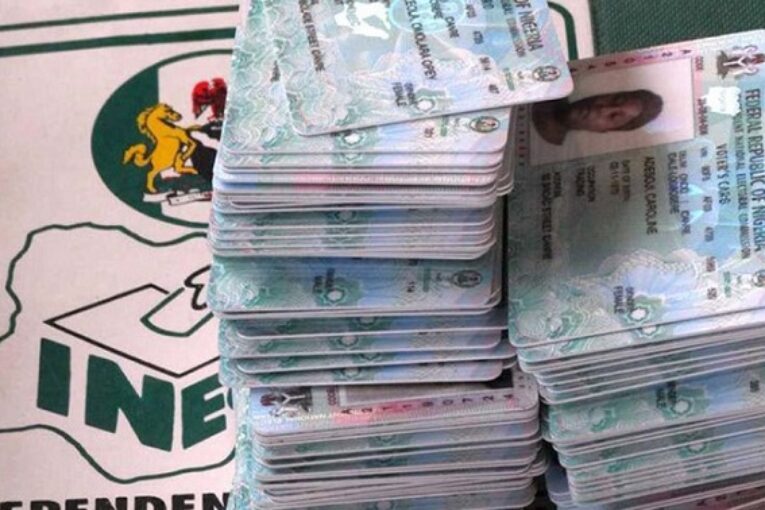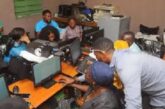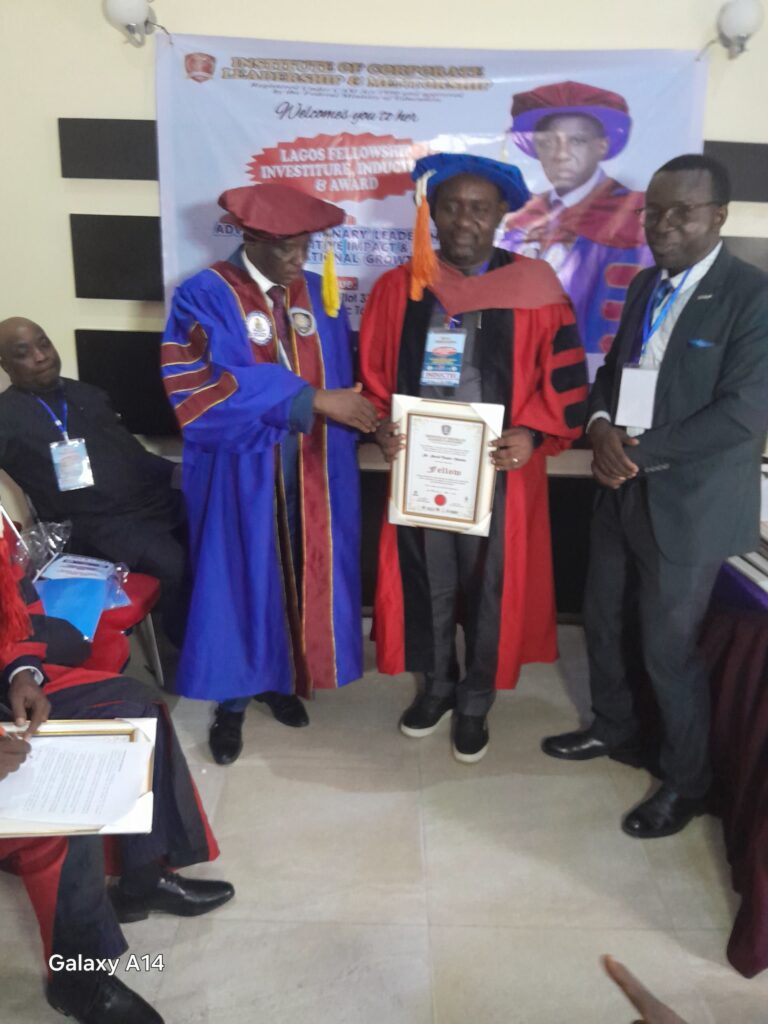
About 87, 209,007 Nigerians who collected their Permanent Voters Cards (PVC) out of the 93,469,008 registered voters in the country will be qualified to vote during the current election cycle, the Independent Electoral Commission (INEC) has said.
This represents about 93.3 per cent of the total registered voters in the country as about 6.2 million registered voters failed to collect their PVCs at the close of collection on February 5. INEC chairman, Prof Mahmood Yakubu who present d the figures at a media briefing ahead of the elections said about 13.6 million new PVCs were printed for those who registered newly or applied to transfer their voter’s card abs for replacement.
Lagos leads the pack of states with about 6,214,970 PVCs collected, closely followed by Kano with 5,594,193, Kaduna with 4,164,473; Katsina with 3,459,945; Rivers with 3,285,785 and Oyo with 2,761,421. Ekiti State with 958,052 has the smallest number of PVCs collected and also has the smallest number of registered voters. Bauchi State with a registered voter population of 2,749268 is however leading other states in terms of PVC collection with 99 per cent of the voter’s card collected in the state, followed by Anambra with 98.8 per cent, Katsina with 98.4 per cent.
Prof. Yakubu said even though the rate of PVC collection remains high, a large number of cards were still not collected by Nigerians. He described the INEC register of voters as the largest and most secure database in the country and on the African continent and one of the largest in the world with over 93.7 million registered voters. He said the commission has succeeded in removing a large number of persons from the registered for one reason or the other and will continue to do so with the help of the citizens while asking Nigerians to continue to guide the document as a national treasure.
Prof Yakubu said the commission was fully ready for the conduct of the forthcoming election, as it has completed arrangements with transport unions for the movement of men and materials to polling units on Saturday. While dispelling fears of a possible compromise of the Bimodal Voter Accreditation System (BVAS), the INEC chairman explained that the machines were configured to particular polling units and also configured to start working from 8.30 am on the day of the election and will function for a particular period.
He said the commission will carefully monitor all ad-hoc staff participating in the exercise and will apply sanction on anyone found to have gone against the oath of neutrality sworn to by all of them. He said further that as a way of ensuring greater access to voting by the citizens, the commission decided to create more polling units because it believes that the right to vote is meaningless when the voter has no access to voting.
Speaking on vote buying, Prof. Yakubu describe the exercise as one of the greatest threats to democracy, saying it was working with security agencies to either reduce the incidence or eradicate it completely. On facilities of the commission that has constantly been attacked, the INEC Boss said the commission has recovered from such attacks and has fully deployed its personnel for the elections in those areas.




